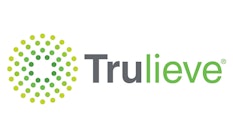
Jan. 22 marked one year since Arizona launched its first adult-use cannabis sales, and data from the state’s Department of Revenue shows that adult-use sales topped $520 million in 2021.
While the department has not yet finished tallying December’s sales figures, the Arizona dispensaries racked up $528,001,278 in adult-use sales last year, and the state brought in $44,533,436 in tax revenue.
“I believe that the level of sales is close to where we expected,” Demitri Downing, founder of the Arizona Marijuana Industry Trade Association, told KJZZ. “I think there’s individuals who would like them to be higher. Compared to other states, ... it’s about consistent with what other states show.”
The tax revenue generated by Arizona’s adult-use cannabis sales will be used to support state programs like community colleges, transportation and law enforcement, according to the news outlet.
When December’s sales figures are finalized, Arizona will have a combined total of over $1.3 billion in medical and adult-use cannabis sales for 2021.























